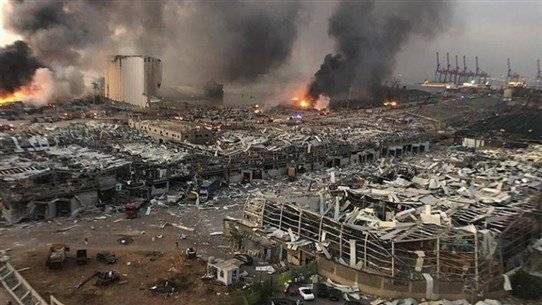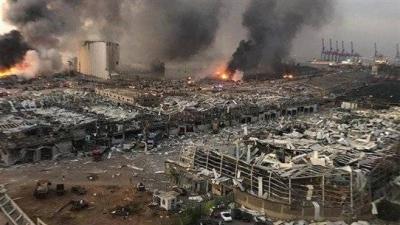The calendar has turned completely to remind us of the fateful day... August 4 returns to remind us of what we could never forget: the explosion at the Port of Beirut that leveled an entire city once synonymous with joy, life, and noble protests, transforming it in an instant into a black space reeking of death, blood, and negligence. "My state did this." This slogan "adorned" the walls surrounding the crime scene of August 4, which had a more than horrific toll. Over 200 martyrs and 6,000 injured fell in an instant when large quantities of ammonium nitrate, stored dangerously in warehouse 12 of the Port of Beirut, exploded. However, this scene, no matter how harsh and horrific, does not solely represent August 4. No one doubts that this crime of the century completely exposed a political class that has systematically undermined Lebanon, its people, and its resources for decades. This is evidenced by what has happened and is happening in the investigation into the crime. After Judge Fadi Sawwan was removed from the case, his colleague Tarek Bitar took on the fiery responsibility of the investigation, putting the judiciary's authority and reputation in open and direct confrontation with the political authority fearful for its power, might, and continuity.
The new judge quickly detonated a heavy political bomb in everyone's face: he summoned a large number of prominent figures who were in the crosshairs of the previous judge. This clearly indicates that the train of truth will not reach the final station until these individuals provide satisfactory answers to some fundamental questions, first among them: Who owns the shipment of nitrate and the ship "Rhosus," which has been docked at the port for nearly a decade without oversight? And perhaps more importantly, who contacted former Prime Minister Hassan Diab and asked him not to visit the port days before the disaster? All these responses have been deliberately concealed by the figures and forces orbiting around them from the public, especially the families of the victims. The priority lies elsewhere: in political and governmental reckoning and long-term presidential agendas... at the expense of the noble cause.
There is no clearer indication of this than the record number of lawsuits and challenges filed against Bitar, who has been "unemployed" for more than six months due to the intentional obstruction of the investigation. However, the worst part is that some of those wanted for justice in this case have, with complete calm, run for the latest parliamentary elections... Even some returned to their parliamentary seats, entering the Committee on Administration and Justice, and today they issue statements defending the dignity and respect of the parliament and its status... But what about the dignity of the families of the victims and their right to know the truth? This is a question we may not find a satisfactory answer to before the third anniversary of the tragedy, which we will surely commemorate next year in the absence of the first silent witness: the grain silos that could not withstand more than two years, knowing that if they spoke, they would reveal all that is concealed... and this is what many do not want, which explains why the fall of the silos has gone unnoticed by a people busy securing their daily bread in a land of injustice and impunity, where each day turns into a new August 4...




